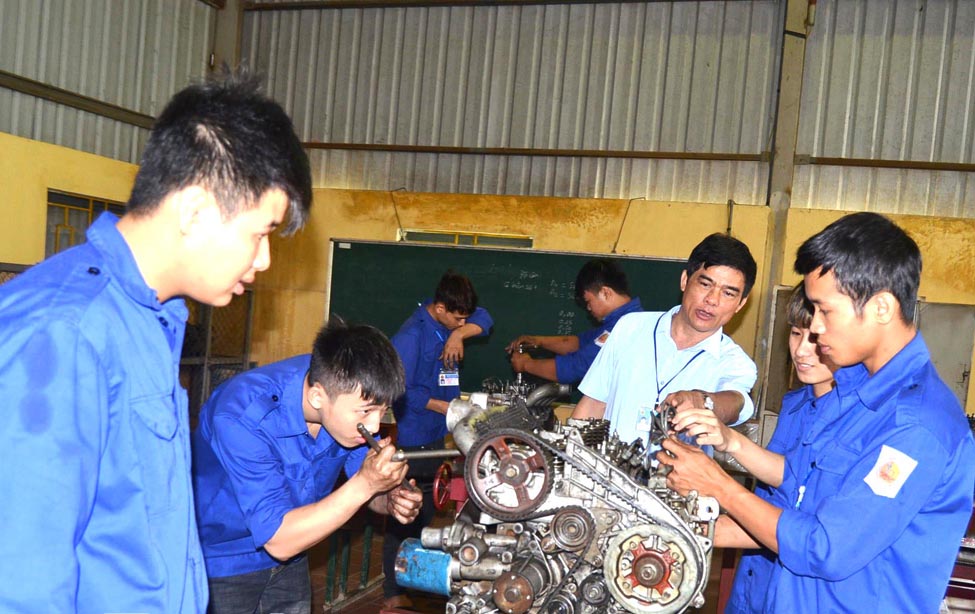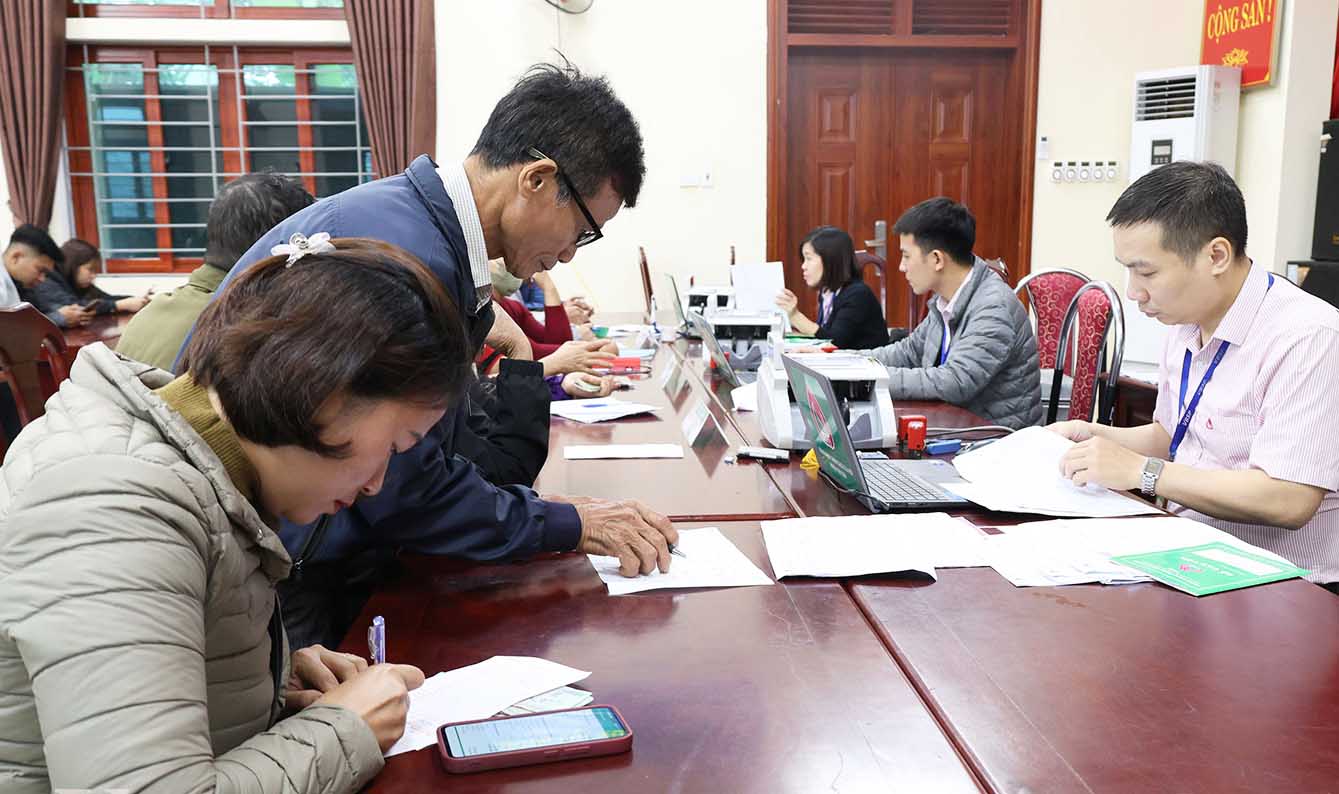In just over 3 months, Mr. Ban Van Huy (Yen Son district, Tuyen Quang) will graduate from the automotive technology training course at the vocational school. After finishing his studies, Mr. Huy plans to apply for a job at a car repair facility in the area.
"I see that the demand for personal auto repair is quite large at present, after finishing school I will work for a while with experience and capital and then open my own shop. Vocational training at school is also more methodical and helps me get a job when I graduate," said Mr. Huy.
Currently, vocational training institutions in Tuyen Quang province and enrollment work have increasingly been linked to social needs. Many occupations with high employment rates, in line with local realities, have attracted many rural workers to study.

Mr. Do Xuan Truong - Principal of Tuyen Quang College of Technology and Technology said that the school's training scale is more than 1,700 students/year, by 2025, the training scale will increase to 2,000 with a variety of majors and professions according to social needs.
"We always proactively cooperate with businesses from the training process to outputs for students, thereby contributing to solving employment for graduates, thereby contributing to increasing the rate of students and graduates having jobs immediately," Mr. Truong informed.

Some localities in Tuyen Quang province have supported loans, initial expenses such as accommodation, travel, personal items, passport fees, and health check-up costs for many rural workers to help workers easily participate in the international labor market.
According to statistics from the Tuyen Quang Provincial Employment Service Center, each local job fair attracts an average of 1,000 to 2,000 participants. Through job fairs organized at the grassroots level, many businesses and vocational training institutions have recruited and trained thousands of rural workers to work abroad.
In 2024 alone, the whole province of Tuyen Quang has created new jobs for over 26,300 workers, reaching over 116% of the annual plan. Of which, the rate of workers working in the province after receiving vocational training is high, with nearly 17,000 workers working abroad under contracts reaching nearly 1,500 people.











